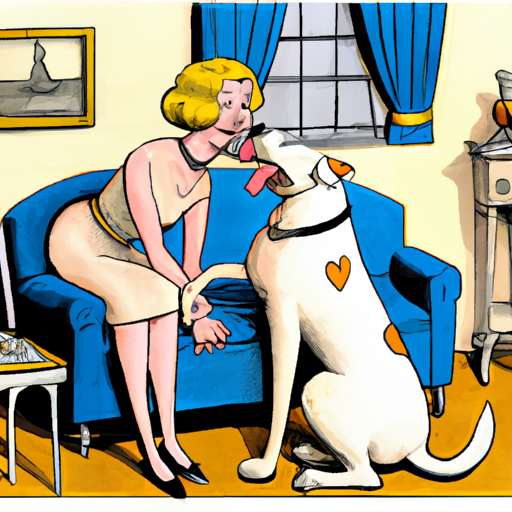Understanding the Dog’s Perspective
Dogs, just like humans, have their own unique ways of expressing affection. Among these many forms, one of the most common and noteworthy is face licking. Sometimes, your furry companion may approach you, wagging its tail, and begin licking your face with fervor. This behavior, while puzzling to some, is deeply rooted in a dog’s psychology and social instincts.
The Science Behind the Lick
Understanding why dogs lick faces requires a look into their instinctive behaviors.
- Dogs lick faces as a form of communication. It’s a submissive gesture that they use to say “I come in peace”.
- Dogs also lick to explore their environment. Their tongues, like their noses, have scent-sensitive cells. So, when they lick your face, they are not just showing affection but also gathering information about you.
- Dogs lick as a way of seeking attention or asking for food. Puppies lick their mother’s face to stimulate regurgitation, a behavior that sometimes persists into adulthood.
Health Implications
While it’s heartwarming to be on the receiving end of such affection, one cannot ignore the potential health risks involved. Here’s a table summarizing some of the possible risks and precautions:
| Potential Risks | Precautions |
|---|---|
| Bacterial Infections | Keep your dog’s vaccinations up-to-date |
| Parasites | Regularly deworm your dog |
| Allergies | Consult with a doctor if you have pet allergies |
Setting Boundaries
It’s essential to set boundaries when it comes to face-licking. If you’re uncomfortable with your dog licking your face, it’s okay to discourage this behavior. You can gently push your dog away or distract it with a toy or treat. Remember, it’s crucial to communicate these boundaries in a positive, non-punitive manner.
Cultivating a Healthy Relationship
Instead of letting your dog lick your face, there are other ways you can show affection:
- Petting: A good old-fashioned petting session can do wonders. Most dogs love being stroked, especially on their chest or behind their ears.
- Quality time: Spend quality time with your dog. Play fetch, go for walks, or just sit quietly together.
- Training: Training sessions not only help in instilling discipline but also allow for bonding. Reward your dog with treats and praises to make the experience positive.
FAQ Section
Q: Is it okay for my kids to let the dog lick their faces?
A: It’s generally safer for adults than kids as children’s immune systems are not as strong. If your dog is healthy and vaccinated, occasional licks should be fine. However, it’s always best to teach children to wash their hands after playing with pets.
Q: Can I get sick if my dog licks my face?
A: While it’s rare, there is a small risk of transmitting diseases through a dog’s lick. It’s better to allow licks on the hand rather than the face.
Q: How can I discourage my dog from licking my face?
A: You can gently push your dog away or distract it with a toy. Consistently discouraging the behavior will help your dog understand that face licking is not acceptable.
Remember, at the end of the day, your dog’s behavior is a testament to its love for you. Understanding and respecting each other’s boundaries will only strengthen your bond.



